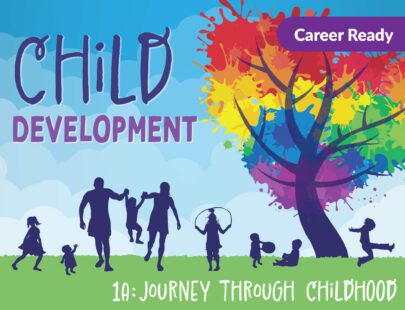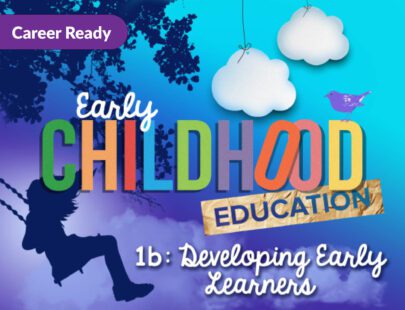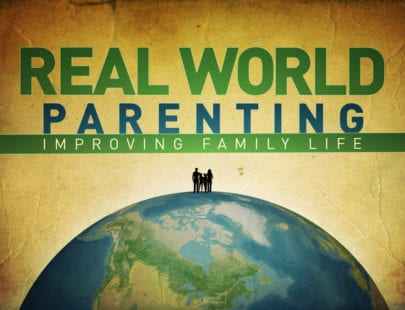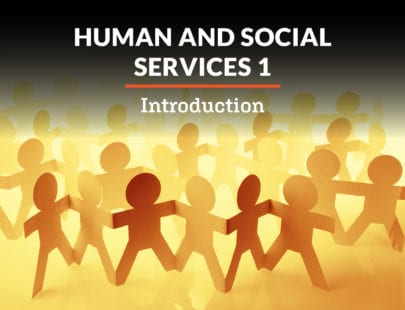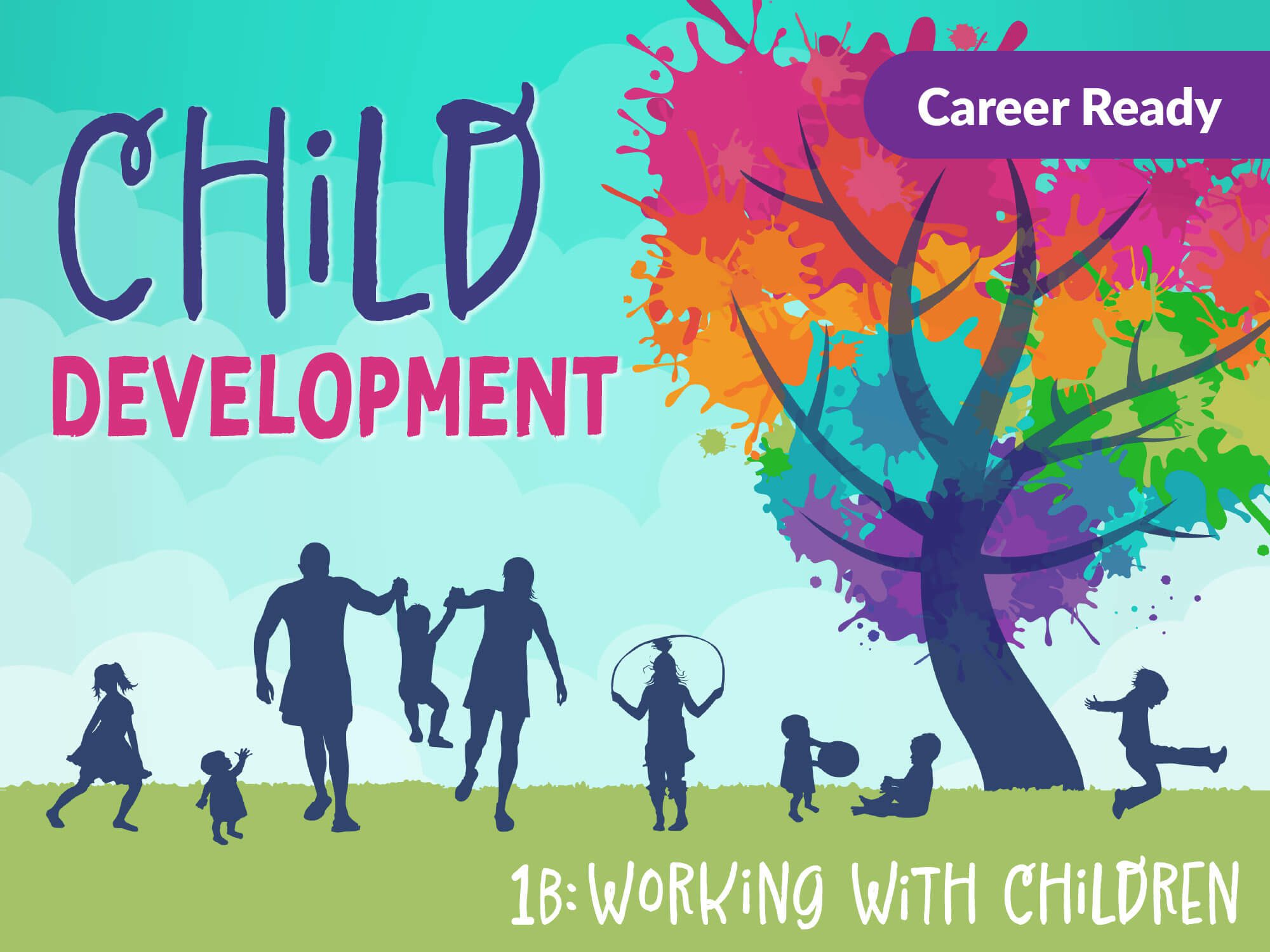
Child Development 1b: Working with Children
You have learned the basics of child development, and now it’s time to dig deeper into the psyche and behaviors of children. In this course, you will learn about setting boundaries, creating rules, and enforcing consequences when working with children. You will explore helping kids and teens manage stress, provide support for children with disabilities and enrichment for gifted children, how to perform first aid, and more. You will also set goals for your future career working with children and adolescents. Let’s continue beyond the basics and expand into the world of child development.
Units at a Glance
Unit 1: Working With Children
A child’s primary “job” might be to play, but employment in a childcare profession is not all fun and games. It can require detailed planning, responsible decision-making, specific training or certification, and even personality traits like patience and enthusiasm. Caring for children involves anything from teaching, coaching, and entertaining to providing medical care or counseling. For anyone interested in a career working with youth, from infants through adolescents, this unit provides an overview of what to expect and how to prepare.
What will you learn in this unit?
- Analyze the role of childcare in modern society
- Discuss careers in child and adolescent education
- Describe non-education careers related to children’s well-being
- Explain various training, certifications, or other requirements necessary to work with children
Unit 2: Influencing Behavior
Why do you think toddlers throw tantrums or teenagers talk back when they don’t get their way? These and many other negative behaviors might frustrate parents and caregivers, as it is their responsibility to promote positive, socially adaptive behavior patterns. But people who study and work with children believe there are developmental reasons for children’s reactions and responses. In the field of child care, these theories can help us better understand children so we can steer their attitudes and actions in positive directions. As you teach and model good behavior, you will not only benefit individual children but also the societies in which we all live.
What will you learn in this unit?
- Analyze possible reasons for children’s negative behaviors
- Discuss behavior boundaries and the consequences of exceeding them
- Describe various positive approaches to teaching appropriate behavior
- Explain the negative impact of certain behavior guidance approaches
Unit 3: Keeping Children Healthy and Safe
Until children have the knowledge, skills, and resources to care of themselves, it is a caregiver’s job to protect them from harm. That protection includes preventing and treating health problems whenever and however possible. It also means taking safety precautions to avoid injuries from accidents at home, at school, or during daily activities like playing outside or riding in a vehicle. Some jobs in childcare even require specific training in emergency care. This unit outlines some important ways parents and childcare providers can keep children healthy and safe.
What will you learn in this unit?
- Describe common childhood diseases, illnesses, and treatments
- Explain emergency and first-aid care for children
- Outline preventative measures for childhood illness and injury
- Investigate available community health services for children
Unit 4: Helping Children Deal with Stress
It might seem as if children encounter less stress than adults do. After all, kids typically are not working, raising a family, fixing a leaky faucet, or paying the grocery bill. But even children who live and play in loving homes with three meals every day can experience high levels of stress. Less apparent causes of stress might be based on their interpretations of what they see or hear or on what they don’t know or understand. More visible stressors center around traumatic events like abuse, neglect, divorce, severe illness, or the death of a close family member. Working with children requires caregivers to be aware of the causes and effects of stress and to be knowledgeable in ways to combat the physical, mental, and emotional risks that daily stressors pose for children of all ages and across all environments.
What will you learn in this unit?
- Describe the physiological, cognitive, and social-emotional effects of stress
- List and explain the stages of grief processing for children
- Analyze the effects of child abuse and its relationship to stress
- Discuss various common childhood stressors
- Demonstrate knowledge of stress prevention and reduction strategies
Unit 5: Supporting Children With Functional Needs
Anyone who works with children probably understands that each child is unique and requires some level of individual attention and care. Many children, however, have extraordinary needs, which means parents, educators, and healthcare providers must offer care and services that are out of the norm. These children might have physical or cognitive delays that lead to challenges with socializing, learning, or daily functioning, and such delays can range from mild to severe. To help children who have functional needs adapt to and succeed in their environments with their unique conditions and skills, caregivers must work together and should take advantage of all available resources.
What will you learn in this unit?
- Describe children’s needs related to intellectual delays
- Discuss children’s needs related to physical delays
- Explain common adaptations for children’s unique needs
- Identify resources available to people who work with children who have functional needs
Unit 6: Working with Gifted Children
People who work with children must remember that exceptional needs can take many different forms and that children who have exceptional needs are not only those with delays, deficits, or disabilities. Children who have exceptional cognitive skills or extreme talents also need extra attention and extended opportunities to learn, grow, and develop to their fullest potential. Parents and educators should monitor uniquely intelligent or gifted children so they can provide learning experiences to challenge—without overwhelming—this often highly-sensitive group.
What will you learn in this unit?
- Define “gifted” in today’s educational environment
- Discuss common early indicators and testing for gifted children
- Explain typical social-emotional behaviors of gifted children
- Analyze strategies and methods for effective talent development
Unit 7: Curriculum, Classrooms, and Kids
Helping children grow toward adulthood is a big responsibility, and guiding their learning process is one of the most important components of that development. Teachers and other educators must be knowledgeable and equipped with the right materials so they can determine and deliver appropriate content using the best instructional methods for students. Factors like classroom design, lesson planning, and specific teaching strategies are critical elements to consider while they guide this learning process.
What will you learn in this unit?
- Determine the needs of students in a classroom
- Specify overall learning objectives and specific goals for students
- Create lesson plans for inclusive education
- Discuss goal setting and recordkeeping tasks in education
- Design an early learning classroom
Unit 8: Your Role in Child Development
At this point you have learned many of the basics about caring for, educating, and guiding the development of children and adolescents. Can you see yourself playing a role in this field? There are various careers to explore and ways to research further details and duties of each job. Now it is time to use your new knowledge and resources to discover what might be the next step for you.
What will you learn in this unit?
- Explore personal interests and aptitudes related to childcare careers
- Describe steps and goals toward specific job paths
- Identify necessary and beneficial skills in the child development field
- Discuss ways to network and interact with others in the childcare community
Required Materials
Physical
- Video recording device
Software
- Graphic design software
- Presentation software
- Word processing software
Optional
- Art supplies
- Audio recording device
- Digital camera
- Doll or stuffed animal
- Helper
- Various household items
